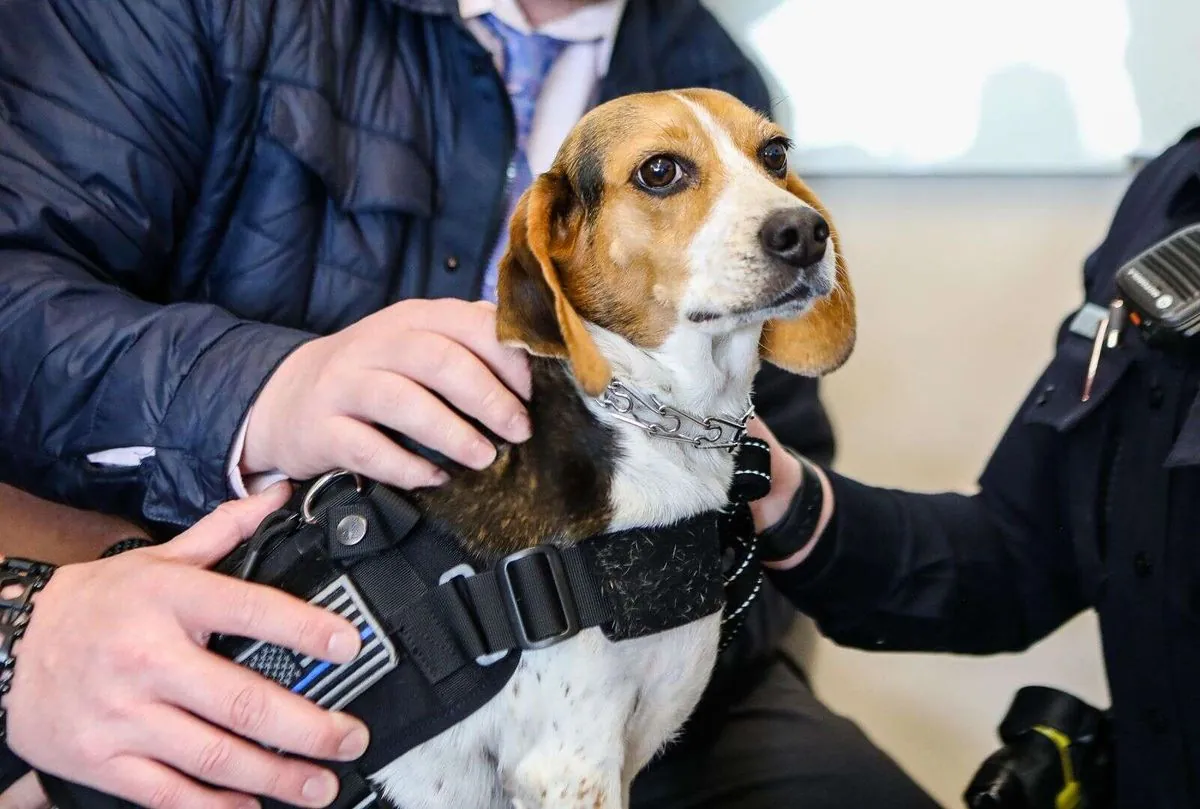UK Police Officer Sues Force Over Autism Assistance Dog Denial
A detective sergeant is taking legal action against Hampshire Police for disability discrimination after being denied permission to bring his autism assistance dog to work, despite other staff members being allowed similar accommodations.

A law enforcement officer in the United Kingdom is pursuing legal action against his employer, citing disability discrimination. The case revolves around the denial of permission to bring an autism assistance dog to work, despite similar accommodations reportedly being granted to other staff members.
Matthew Parker, a Detective Sergeant with the Hampshire and Isle of Wight Constabulary, has initiated legal proceedings against the force. Parker, who has been serving since 2004, contends that he requires his "psychiatric assistance" dog, Koda, to help manage his autism and other mental health conditions.
The situation unfolded over several months. In December 2021, DS Parker first requested to bring Koda to work. After being initially denied in February 2022, he brought the dog to a digital forensic lab without authorization. Consequently, a superior instructed him to leave and return without the animal. A year later, in January 2023, Parker renewed his request, which prompted the human resources department to seek further occupational health advice.

Interestingly, the tribunal heard that two other police officers and a staff member with PTSD were permitted to have assistance dogs at work. However, these were considered exceptions rather than standard practice. This discrepancy forms a key part of Parker's discrimination claim.
"The fact that some individuals were able to convince the [police] that they should be allowed to bring the dogs in, was an exception to the usual practise of not allowing assistance dogs into the workplace."
It's worth noting that autism assistance dogs have been recognized since 1997 when the UK charity Dogs for Good trained the first one. These specially trained animals can perform tasks such as interrupting repetitive behaviors or providing deep pressure therapy, which can be invaluable for individuals on the autism spectrum.
DS Parker's case also highlights broader issues of neurodiversity in the workplace. He alleges that the force's promotion process to Inspector disadvantages neurodiverse employees. The process involves scenario-based interviews where candidates receive questions shortly before the interview, a format Parker argues is particularly challenging for those with conditions like autism or anxiety.
This case underscores the ongoing challenges in implementing reasonable adjustments for employees with disabilities. In the UK, the Equality Act 2010 provides legal protection against discrimination, but its application in specific workplace contexts can be complex.
As the full tribunal hearing approaches, this case may have significant implications for how law enforcement agencies and other employers accommodate neurodiverse staff and those requiring assistance animals. It also raises important questions about the balance between organizational policies and individual needs in creating inclusive work environments.


































